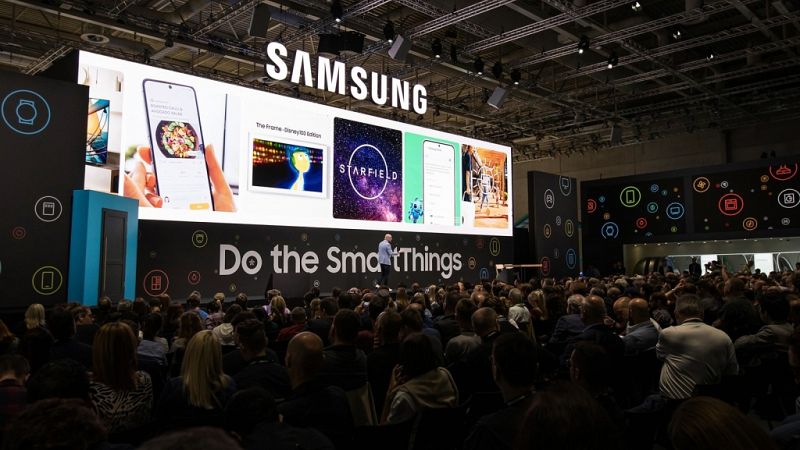
A new forecast from the memory chip and smartphone maker Samsung Electronics fell significantly short of market expectations in the second quarter this year. The warnings arrive as trade tariffs and US restrictions on China continue to take a toll on the South Korean tech giant.
Operating profit is expected to be approximately 4.6 trillion Korean won (€2.86 bn), 56% less than the 10.44tn won Samsung reported a year ago.
The firm forecasts its sales revenue to be around 74tn Korean won (€46 billion) for the three months ending in June 2025, which is unchanged compared to the previous year.
“Samsung Electronics’ recent struggles continued as it warned on profit,” said AJ Bell investment analyst Dan Coatsworth. “The company has been heavily impacted by US restrictions on the sale of AI chips to China.”
Washington first started to restrict the flow of semiconductors from the US to China in 2022 as a means to hamper Beijing’s tech ambitions. The White House has since ramped up these measures several times, also hurting American chip firms like Nvidia that sell into China.
Samsung is one of the biggest smartphone manufacturers in the world and is also a leading maker of memory chips, used in devices such as laptops and servers.
The company’s semiconductor business also saw a profit decline due to inventory-related costs, and the firm is being negatively impacted by new tariffs from the White House.
US President Donald Trump has announced a 25% tax on goods imported from Japan and South Korea, along with new tariff rates on other countries, starting on 1 August.
Before the latest US tariff rate was announced, promising export data from South Korea raised hopes that semiconductors could drive up the country’s exports. They hit a record in June, rising 11.6%.
Samsung also announced a 3.9 trillion won stock buyback program to enhance shareholder value. When a company buys back its own shares, the stock price usually goes up due to higher demand. Typically, the repurchased shares are cancelled, reducing the total number of shares outstanding. This gives remaining shareholders a proportionally larger ownership stake in the company.
The share price was down 0.5% at the close in Seoul, but Samsung’s stock is still up 15% year to date. The company will report quarterly results at the end of July.







